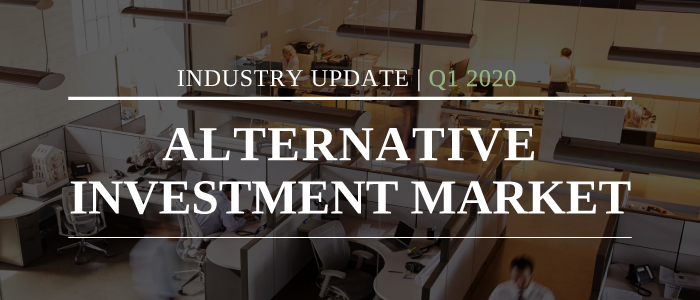Has there ever been a time when a reputation for volatility in a capital market was a good thing? Arguably we are in the midst of that time right now.
In the last couple of months,Covid-19 has swept all before it. Across the UK, we have seen companies suspending or slowing their businesses during the lockdown. Millions are having their wages paid by the government and businesses small and large have been fighting for their survival. The results of this huge shock have been quite predictable; massive uncertainty and panic in the markets.
From the initial stock market rout on 20 February to 19 March, the FTSE AIM All-Share market fell over 30% from its post 2018 high of 972. This was a trend repeated across markets globally. But the truth is that expert AIM investment managers and experienced AIM investors are likely more prepared than most for these types of sharp, short-term fluctuations.
According to FTSE Russell’s 30 April Factsheets, the FTSE AIM All-share five year volatility percentage stood at 18.3% while the FTSE All-share figure was 13.2%. So AIM managers are well-versed in the requirements for diversification, defensive stock picking and charting a course through the ups and downs, while assessing the vast array of growth opportunities that reside there. To see what a successful path through Covid-19 is likey to look like for AIM read this section of our AIM Quarterly Update.
The long-term outlook of those in the tax-advantaged space, whether it is AIM-quoted companies that qualify for the Enterprise Investment Scheme, Venture Capital Trusts or Business Relief, also serves as a dampener for short term shocks.
So the good news is that it’s not all bad news.
The AIM All-share market jumped 13% between March 23 and March 27 and by May 27, it was at 856, regaining 267 of the 383 points it had lost at its 19 March low of 589.
What’s more, good managers are fully aware that there will be opportunities to pick up companies that have been oversold, with the potential to generate good returns for investors. And with think tanks like the Institute for Fiscal Studies stating that tax rises are inevitable to pay for the measures to protect against the virus, the case for tax-advantaged AIM investing is still strong.
The newly launched AIM Quarterly Update includes a section on the impact of the pandemic. To read that section, click here.
To find out more about the first ever AIM Quarterly Industry Update, click here
